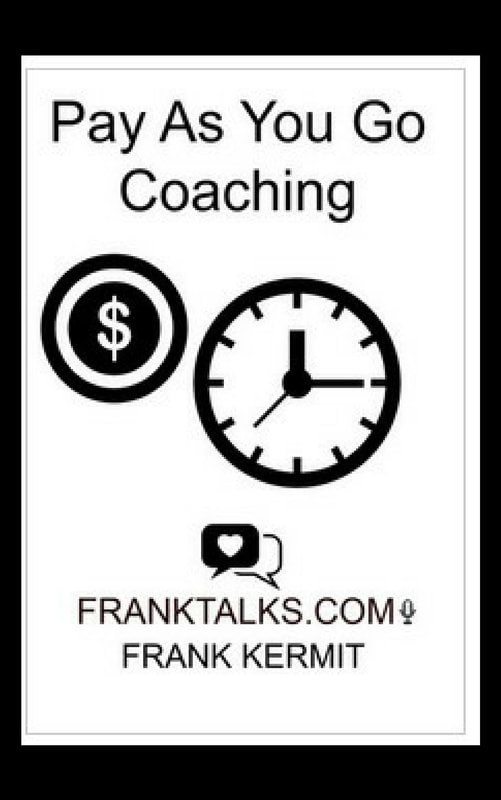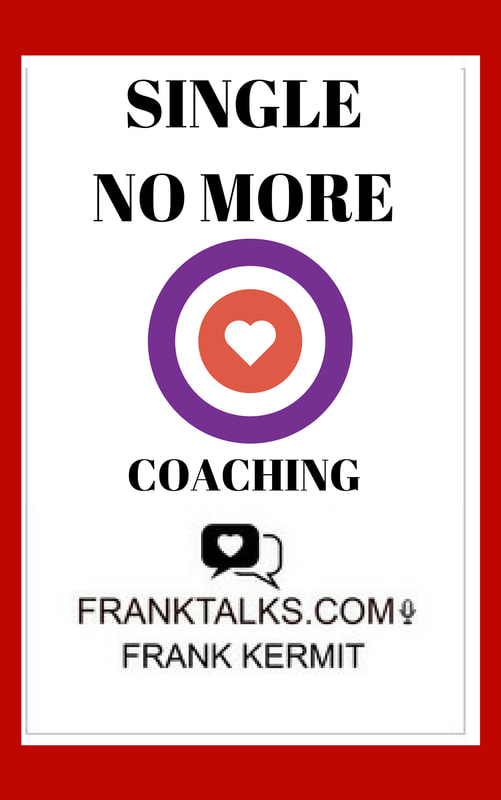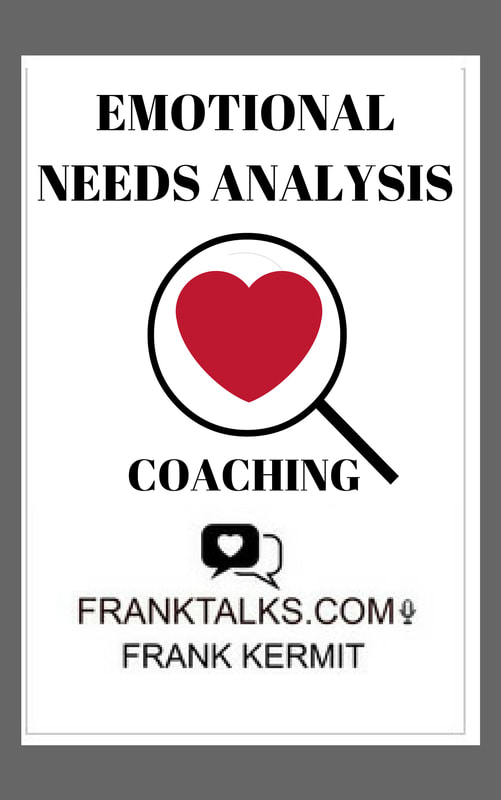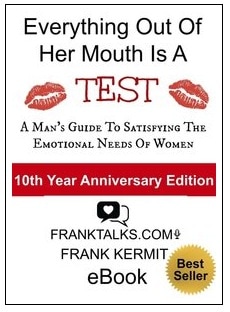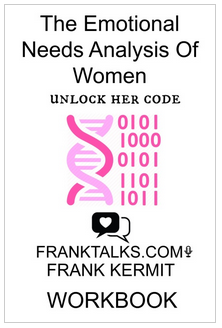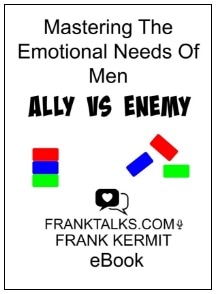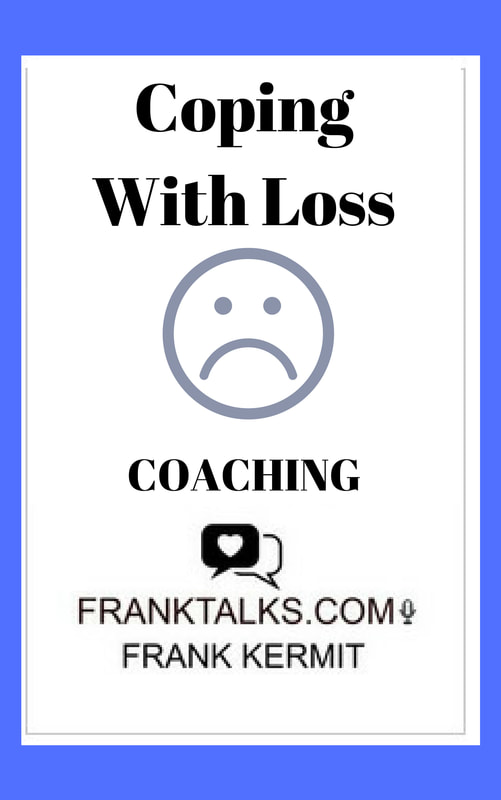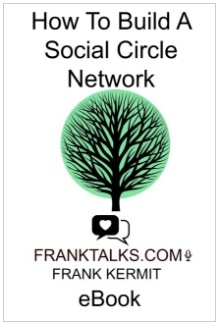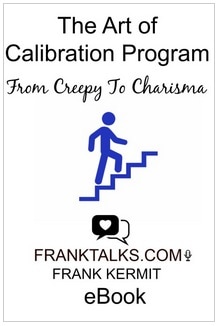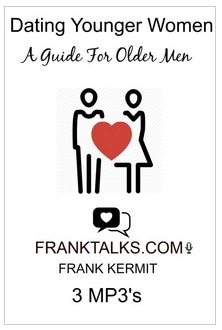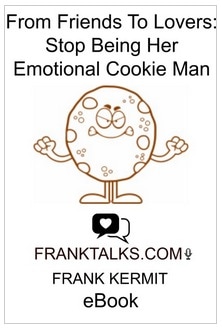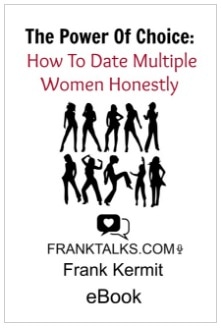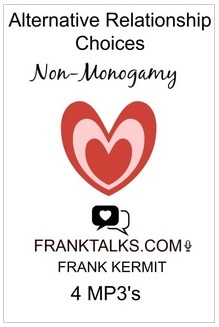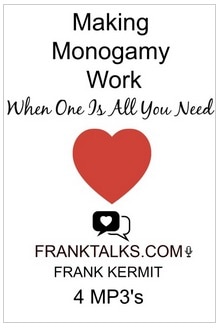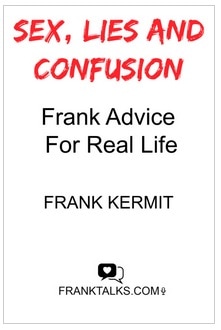|
I'll Tell You Where All The Good Men Have Gone by Arun Eden-Lewis Search the words, “Where have all the good men gone?” and dozens of anecdotes, articles, blogs, and books will appear on your screen. Overwhelmingly, this question is posed by women, discussed by women, and answered by women. This, ironically, is an essential reason for these so called man-deserts—men are simply not being asked to contribute their opinions and perspectives. And the good men themselves are increasingly less likely to offer their point of view, for many reasons. I do not seek to apportion blame here, on either side, but simply to address this question from the seldom-heard voice that is the object of the question itself: good men. The last 100 years of suffragettes, feminists, and political correctness have challenged and continue to challenge thousands of years of patriarchy—and rightly so. Consequently, the roles of both men and women have been transformed and redefined. While we struggle to adjust to the new and still evolving status quo, the war of the sexes has taken millions of casualties. In Western culture, divorce rates for first marriages range from 42 percent in the U.K. to 53 percent in the U.S. to a staggering 71 percent in Belgium. Subsequent marriages fare even worse. The spectre of divorce is another contributing factor in the conspicuously expanding man-deserts. Many men, having seen their fathers broken by divorce, fear the loss of their assets, their homes, and their children and are simply stacking their chips, choosing not to gamble, and checking out of the marriage casino. Family courts invariably award primary custody to the mother, while the father is restricted to weekend access, supervised visits, or left to literally climb the walls of Buckingham Palace in a superhero costume to protest rights for dads. Men—will they ever grow up? The ridicule and debasement of men in the media and mainstream culture is now pervasive. Watch a commercial, sitcom, or movie, and invariably an immature man-child or dumb dad is the butt of the joke—the hapless buffoon. Fortunately, these silly men are always saved from themselves by a smart, witty woman or a conscripted, eye-rolling child. The emasculation of men has become normalized. Sensibly, rather than have their balls cut off (sometimes literally, and that often gets a good laugh), men are running for cover in their droves, leaving women mystified and asking, “Where have all the good men gone?” When I was in secondary school, perhaps 14 years old, there was a girl who patrolled the playground, egged on by her gang of girlfriends, kicking the boys between the legs. Clearly, she had been informed by someone this was the quickest, easiest, and funniest way to bring those stupid boys down to earth. One day it was my turn. Caught by surprise, I crumpled to the ground after a swift kick to the balls, in too much agony even to cry out. Oh, how the girls laughed! Even then, I abhorred a bully. The following day, I found my attacker in the playground and, contrary to my upbringing, without warning I kicked her swiftly between the legs. To everyone’s surprise she also crumpled to the ground, in too much agony to cry out. A crowd of cheering boys slapped me on the back—their new avenger. The girls stared at me wide-eyed in shock—a boy who fought back? No one had told them that was allowed, surely it was against the rules! Equality: it’s a son of a gun. I remember feeling no satisfaction or honour in defeating a weaker adversary but sometimes, especially in the case of a bully, personal satisfaction and honour is not the point—standing up to their aggression is. As I grew into a man—a good man—I learned to walk away from provocation, as most good men do. Boys are stupid, throw rocks at them!” Remember the T-shirts launched in 2003? Followed by coffee mugs, posters, even a book.“Boys tell lies, poke them in the eyes!” Another favourite for young girls at the time. It took a fathers’ rights activist to have this merchandise removed from thousands of retail stores. Inevitably, he was ridiculed by a myopic majority. Presently, in some areas of the U.K., 80 percent of primary schools have three male teachers or less, one quarter of primary schools have no male teachers at all, and some towns have 65 percent single mother families. Man-deserts indeed. A young boy can go to school and have no adult male role model, and then return home and have no adult male role models. Young girls are achieving significantly higher academic standards than young boys. This feminisation of schools spills over into university, then the workplace, and eventually the home, completing the insipid cycle and the marginalization of both boys and men. I was born in 1968. I grew up with a strong mother, four stronger sisters, and no father. I was taught, not only by my family but also by wider society, to regard women as my equal, and I always have. Yet, unknown to me, a generation of women were being indoctrinated and trained with a sharp-edged tool kit designed to emasculate men. Men have been subjugating women for centuries; now, they’re getting payback. It seems only fair. The fox has turned on the hounds and she’s packing a punch, or a kick to the balls. But the nature of men when faced with a fight is to fight back, either psychologically or physically. Clearly there are no winners in this scenario. The relentless competitive struggle to determine who wears the trousers is simply a turnoff for many men. Many are just opting out of the kind of psychological warfare that is common in relationships today, unwilling to engage in the minefield of mind games, which are usually executed in three ways. The first is the habitual belittling and denigration of men, in private or in front of friends, family or colleagues, for what is supposed to pass as humour. The second is letting a man know, casually of course, that other men are sexy, have better looks, more money, talent, or fame. The third, and perhaps the most destructive is being told over and over, “We don’t need no man. Men are obsolete.” I’ve lost count of how often I’ve heard this since adolescence. If you tell a man often enough that he is surplus to requirements, eventually he will stop expending his energy to convince you and himself otherwise. Men are rapidly waking up to this phenomenon of man-bashing, so much so that a disillusioned social movement has arisen with its own freshly-minted acronym: MGTOW, Men Going Their Own Way. Supported by websites and online forums, men are regrouping with a common cause, a sense of brotherhood, and finding their voices again. The essential precepts of MGTOW are financial independence, rejection of chivalry, social preconceptions of what a man should be, and consumer culture which defines masculinity by a man’s house, car, clothes, watch, or cologne. It is the refusal to be shamed into conventional compliance by being told to “man up.” Many aggrieved MGTOW refuse to marry or even date Western women, the more ardent among them consciously choosing non-committal relationships, strippers, pornography, or celibacy. Above all, goes the MGTOW mantra, maintain sovereignty of self. I have been dating for more than 35 years, and back in the 1980s, a man was expected to pay for the movie tickets, dinner, flowers, chocolate, the diamond ring, the house. In each subsequent decade these social conventions have slowly eroded, yet to a greater or lesser extent still remain. Long-held social biases, like the wage gap for example, take time to bring to full equality. It is important to recognize, however, that equality is a two-way street. It is abundantly clear that many men and women are struggling to walk along that street in close proximity, let alone hand in hand. Why? Because for a century we have been digging up and bulldozing said street. Now, it’s full of potholes, power struggles, and barely fit to travel. Yet travel it we must. The original message of equality has been somewhat skewed. Women often recycle the poorly thought-out doctrine that they are the same as men. Equality is not always sameness, and sameness is not always equality. For example, women have equal opportunity to go to war and fight side by side with men, but the physical standards to allow them to do so are not the same. And this can be seen across a whole spectrum of professions, from firefighters to ballet dancers. Equality is not always sameness. Difference is diversity, and should be a cause for celebration, not dogmatic elimination. Men are often told (but, again, not asked) they are afraid of strong independent women. Many men, tired of such futile debates and wary of being branded a misogynist if they dare to disagree, are simply shutting down and becoming emotionally unavailable to women, taking permanent residence in their man-caves. The truth is, men love strong and independent women—it turns them on, in every way. What men don’t love are the predominantly masculine traits that often go along with the package. The relentless competitiveness (necessary in the workplace no doubt, but hardly necessary at home in a loving relationship), the verbal aggression, the emotional manipulation, and the psychological controlling are huge turn-offs. Increasingly, men are just not interested in competing at work and then having to come home and compete with their partners. In the sphere of heterosexual relationships, most women are not attracted to emasculated feminine men, which is fair enough. By the same token, most men are not attracted to masculine, domineering women. So, these are some of the general and specific issues creating man-deserts, from the perspective of good men. But what solutions are there? Waking up to our social conditioning is a good place to start. Many women are beginning to reject the modern brand of feminism, the so called third-wave that is tantamount to thinly veiled misandry. Equally many men, for two or three generations now, are rejecting the attitude that a woman is some kind of second class citizen. We clearly have work to do on both sides. Letting go of these destructive modes of thought, communication, and behaviour is an essential process for healthier and happier relationships between men and women. However, denying these issues will in no way change the interpersonal landscape for the better, and women will continue to ask, “Where have all the good men gone?” while wandering an ever-expanding and barren man-desert. So, where have all the good men gone? For now they have gone their own way. But they are out there, in the same desert, contentedly swimming in the oases they have found for themselves, no doubt waiting for the fourth-wave of feminism to wash over them so we can all truly embrace equality, just like the first-wave promised.
0 Comments
Realities of Mental Health by Jenn and Sam, Mental Health Caseworkers Let’s talk about mental health. What really is mental health and who is it affecting? The reality is that it affects everyone. It is the thoughts, feelings, behaviors and emotions that we feel every day. Some days are better than others, and this is true regardless of whether you suffer from a diagnosed mental illness or not. Sometimes, however, the low days become low months or you can’t get the thoughts out of your head. In some instances, your behavior becomes wildly different from how you normally are. Thought patterns or behaviors begin to disrupt your daily activities and functioning. This is when mental health becomes problematic. Most of society believes that they will never be affected by mental health problems. However, approximately 20% of Canadians experience some form of mental illness in their lifetime. This means that 1 in 5 people living in Canada are facing mental health struggles. With the wide reach of social media and social networks alone, you are guaranteed to know someone who is having a difficult time maintaining their mental health. This statistic doesn’t even include those who have a mental illness and do not seek help or agree to participate in statistical surveys. Most mental health disorders emerge in late adolescence to early adulthood. Some will develop later on, at age 40-50 years. We are seeing a trend in recent years, however, of people being diagnosed earlier than average, and we’ve even seen major disorders being diagnosed in children. This sounds scary, but the most important thing to remember is that the earlier a person is diagnosed and treated, the better their outcome. Recognizing the symptoms and seeking treatment early on creates a better prognosis, and a better chance of recovery. Obvious, right? But the reality is that most people have no clue what the signs of a mental health problem are, or are unwilling to seek treatment because of the stigma surrounding mental illness. Our main goal in writing these articles is to desensitize people to the topic of mental illness, inform, and reduce the stigma surrounding mental health. We want people to be able to open a line of communication to those suffering from mental illness; to seek help, talk to someone, and get on the road to recovery. Your mental health, although a part of you, does not define you. Within that same discussion, we hope to provide support and guidance to family members, friends and loved ones of those facing mental health struggles. One of the greatest factors in recovery is having a solid support system, which is why we encourage family and friends to educate themselves with accurate information concerning mental illness, so that they may understand what their loved one is experiencing and support them in seeking the appropriate help. -Jenn and Sam Author Bios Let us introduce ourselves. We are mental health case workers, and although that sounds like a big scary title, it is actually just clinical terms for saying that we help people help themselves. Our job is to empower people with the knowledge and tools to help manage any mental health issues they may be facing. This can range from small bouts of depression and anxiety, to suicidal ideation and chronic illnesses such as Schizophrenia and Bipolar disorder. Whatever the concern, we are here to provide support, guidance and direction in riding the wave to recovery. On a daily basis you can find us meeting with clients and creating Action Plans to accomplish short and long terms goals. We help locate and direct clients and families to community services and organizations. We create and facilitate sport therapy groups, workshops, educational seminars and group activities, all with goal of normalizing mental health issues and empowering clients with the tools and skills to move forward not only in their recovery, but with their life goals. If you are lucky enough, you can even spend time with our onsite therapy pup named Norbert, who is always available and more than willing to give some love and cuddles. Norbert plays his own role as a worker, going out into the community to spread awareness and help with prevention. Our approach is far from traditional and we strive to work outside the clinical “box”. We focus on the individual’s strengths, using their passions and goals to facilitate stability and recovery. Jenn and Sam Mental Health Caseworkers Sex and the City: Season 2- Ready, set.......PANIC!!! Written by: Pillow Talk Gal Has this ever happened to you...Your thoughts are racing, your heart is pounding and then that dreaded feeling that you’re going to pass out begins. You feel like everything around you is closing in and there’s nothing you can do to stop it. What’s happening? Well, chances are you’re having a panic attack. It’s scary (especially the first time) and it happens to so many people, yet it’s something not spoken of, due to its stigmatic nature. In season 2 of Sex and the City, episode 5 – Four women and a Funeral, Miranda has decided to make the jump and buy her own place. She is financially independent and feels ready to take the next step. Being a 35 year old, successful woman buying her own apartment alone (without the financial help of a man) seems to be a concept lost on many of the people around her (her realtor, the mortgage broker, associates at her law firm).
As she visits the vacant apartment to measure for drapes, she meets one of her soon to be neighbours who mentions that the previous owner was an unmarried, lonely old lady, who died and was found a week later, having had her face eaten off by her cat!
Finally in a last ditch effort to save her own life, she gives herself the Heimlich manoeuvre on the back of an unpacked moving box and to her relief, she is able to dislodge the trapped Kung Pao chicken. After she has caught her breath, Miranda immediately calls Carrie to inform her of her near death experience, luckily Carrie is able to talk her off the ledge (so to speak) and calm her down. When asked if she needs company, Miranda puts on a brave face and shrugs off the experience (with the exception of making sure her cat’s food bowl is completely full with food, you know, as a precaution of course).
Then out of nowhere, things start to feel very wrong. Her vision starts to blur, the buildings and everything around her begin to spin and she feels as though she is going to pass out. Luckily, a cab happens to be a few feet away (this is New York City after all), so she summons the strength to hail it over and immediately tells the driver to take her to the nearest hospital. $500 worth of tests later, doctors tell Miranda she has had a panic attack. Even though Miranda was trying to be strong, the stress from the possibility of living and dying alone became too much for her to handle.
In today’s society we are all finding our own way of dealing with the stress factor in our lives. There are so many issues now a days (divorce, politics, terrorism, bad economical times, etc...) that for many it has become almost impossible to not worry, a daily ritual if you will (in waking thoughts or as you put your head to pillow at night). As I write this I can’t help but wonder,
Mental health issues have definitely gotten more attention in the last few years, but it’s important that we all remember that the next time you see someone struggling, instead of brushing them off, be compassionate and think twice before judging. Everyone has ‘’something’’ and we can never really understand how they are handling it. About Pillow Talk Gal Born and raised in British Columbia, she is a professional woman managing a career, marriage, and a teenager. Life can be challenging at times but she's a firm believer that everything in life happens for a reason, and more often than not, she tries to understand those reasons. "Join me in my journey throughout life’s issues and I guarantee you’ll be left pondering an issue or two." - Pillow Talk Gal To read Pillow Talk Gal's last post, click HERE *Disclaimer: Sex and the City was produced by HBO and all rights, titles and interests in any images or clips, used herein under Fair Use and Fair Copying, remain the property of the author. P.S. Do you Agree With This Article? Disagree? Have something to Add? Write your thoughts in the comments below and share this article to see how many of your friends think like you. The Power of the Yoga Community and the Drive-By Divorce By Carrie Joyner The main idea when I created my yoga and fitness studio was to build a community of like-minded people; people who loved yoga, people who wanted to get healthy and fit and strong…mind, body and soul. I had no idea how important this community would become to me until about 2 weeks after opening the doors and had just experienced a drive by divorce. If you have ever started or owned a business, you probably know how stressful it is. You bet it all on red, dedicate months or years (in my case it took about 2 years of planning, financing and finding the perfect location, location, location) to even get to the point where you could actually consider it being “in business”. Add on to that the end of a marriage that involved a 4 year old son, and it was a recipe for disaster. So what is a drive-by divorce? It’s getting a text from your husband asking you to come outside at lunch time. I told him to just come into the studio, I had a pole dancing class going on and wanted to make sure all went well. Then it’s getting another text saying “please, it’s really important…”, so I went outside. I was greeted by the black Mercedes SUV, opened the door, got in and found my now ex-husband staring at me with red eyes and tear stains on his custom fit Armani suit. He didn’t say much as he drove literally to the other end of the parking lot, where he parked the car and looked at me and said “You aren’t in love with me anymore, and I am not in love with you…we are getting a divorce.” Simple as that. The conversation was a bit of a blur. I remember it not being a conversation, more of a speech. I asked him what his next move was, and he said it was to go home and get his stuff. He was moving into a near-by hotel, it’s just over. My only concern at this point was not me, but our son. I said “What about Shane? What do we tell Shane?” “Nothing”, he said, “tell him I am on a business trip until I figure it out.” I got in my jeep and drove far, far away- not wanting my clients or staff to see me crying. I headed to my best friends house on auto-pilot. She wasn’t there, so I headed back to the studio and did a few more hours of work like a robot. I couldn’t think, move, feel….breathe. It was a sucker punch to the heart. I thought things were getting better, he said they were. Apparently not. The next few days were a blur. I was in shock but trying to act like things were normal for my son, who was totally out of the loop. Every morning I woke up, took my son to daycare, went to the studio and tried to get through the day. Working on and at the studio proved to be the perfect distraction. I was an open door kind of girl, and anyone- staff, client, teacher, etc. knew that they could always pop in and say hi or talk to me. This revolving door of mostly females became my tribe. Literally. I would tell them what was going on if they had the intuition or inclination to ask, and I would repeat the story a million times over. Not only did I find women who had been through the same or a similar situation and even some men, but I found a sounding board and it became like therapy to me. Between emotionally fuelled lawyer visits to trying to be zen and teaching my yoga classes, my studio became more than a studio. It became my happy place. When we were under construction, I wanted a big executive office in the back room with cameras and an intercom-but I ended up putting my tiny desk in a tiny closet right off the lounge and reception area, so I actually sacrificed luxury for the benefit of hearing every conversation, every client at the desk and being 10 feet away from my staff at any given time. Which leads me to Merissa. I heard a woman freaking out at the desk about a canceled Pilates class. We used Mind Body software, which allowed us to see who had registered for what class, so if there was a cancellation for whatever reason, we could contact them to notify them of the cancellation. She did not register, but showed up at the “regular” time and was livid that the class had been cancelled. I think the teacher was sick and we couldn’t find a sub. Whatever the case was, I decided to go out and talk to her. I asked her if she wanted some tea. We sat in the lounge and sipped on tea as she vented about how far she’d come expecting to do her class and go home and make dinner. I apologized, things happen sometimes that are out of control. I guess she saw that I wasn’t my normal bubbly self and asked if I was alright. I said no, not really. I was a little overwhelmed with what had happened. I explained what I was going through and in the blink of an eye she went from an angry client to a person with the best words of advice I have yet to hear. She told me about one of her best friends who had been married to a pilot, and he did the same thing. In this case, there was another woman involved. What she told me next wouldn’t change my life, but it did change my outlook on everything. She said “the best thing you can do right now is take care of yourself and your son. Get yourself into the best physical shape you have ever been in, focus on being happy and spoiling yourself. Don’t do this to make him feel bad, do it to make you feel amazing and not sit there thinking about the why’s and the poor me’s.” This did not make everything better. It did not change the situation or my grieving process. But after Merissa, I talked to literally hundreds of women, of every age, who had similar stories. I stopped feeling like I was the only person this had ever happened to. I started to let go of the blame and anger and I started to feel really, really connected to every person who walked through my doors. We all have a story. We do. Once we learn to embrace the fact that everyone is going through, has gone through, or will go through a life altering struggle- we become one. That community that I started building became my pillar of strength in a trying time. They say everything happens for a reason. I believe it. -Carrie Joyner P.S. Do you Agree With This Article? Disagree? Have something to Add? Write your thoughts in the comments below and share this article to see how many of your friends think like you. Battling the Savior Complex By Frank Kermit As children, many of us grew up on stories about the hero that saves a person, and in the process, earned the undying love and loyalty of the person saved so that the hero and that saved person live happily ever after. The message that some people got was that being a hero is a way (and for some people, they learned it is the ONLY way) to earn a love that will never experience abandonment. Others learned from those stories that you are only worthy of love if you save someone.
The "saved" person could be a person with low self esteem that makes poor choices for their own lives, a recovering addict, a person that has given up on some part of their life, a person that is always short on money, or a person that is unable to accept and express love and compliments. The savior in this case finds a person that needs help in an area that the savior feels they have some talent in and attaches to that person-in-need-of-help, usually very quickly.
For example, out of an Emotional Need of fear of abandonment, a would-be savior will actually sabotage a person's progress of healing so that the person is forever dependant on the savior. Lastly, a savior might also be a victim of someone that preys on the overly nice nature that some saviors exhibit, which results in the savior eventually needing to be saved from the manipulative puppet master.
Another scenario is that once a person has healed, he or she becomes a different person, and the new person would not have ever sought to date a savior type to begin with, and the healed party moves on to find a new life partner that they can be on more equal footing. A life partner cannot be someone that a person needs to save in order to earn love. Your life partner will love you regardless if you have the power to save them or not. If a potential life partner seeks you out to solve all of his or her problems, or if you are the one that feels obligated to save your partner from him or her self as a means to stay importantly relevant in their lives, it is all one big Red Flag. At best, a life partner is something that you can be equal too, in the sense that neither one of you is required to save the other, especially saving a partner from themselves. As partners, people can grow together, and explore the world together, and support each other through hard times, all the while making the mistakes we all make being human beings.
Beware of online profiles and single dating ads that start with: Rescue Me or something of that nature. Fairy tales might make damsels in distress seem like a romantic notion, but the real world is no place to have a life partner that does not have the inner capacity to be their own hero. Frank Kermit P.S. Do you Agree With This Article? Disagree? Have something to Add? Write your thoughts in the comments below and share this article to see how many of your friends think like you. The Silver Lining of Post Traumatic Stress Disorder (PTSD) by Josee St-Onge There were many things in my life that were not planned nor desired. Developing PTSD certainly was not one of them. Nor was the assault that lead to it. For me, it was like waking up in a foreign country. An outsider, within my own life. Even the simplest of tasks required a revision of each step in order to be able to accomplish it. At times, I did not feel much. At other times, I felt too much. Caught between two elusive worlds, I clung to anything that would help me to stay present. The laughter of my children was the first thing to seep in. Sleep was my enemy. But being awake was not my ally. Every cell in my body felt like it was irritated and angry. Utilizing every ounce of my energy. There were no reserves to access. No clear healing path to follow. And then a thought occurred to me. I had survived the worst. It was time to just be. Be who I need to be at the moment in order to move forward. Letting go is far less painful but rather a scary thing to do. Allowing myself to feel, transformed me into something unexpected. Showing me that there is no shame in taking a step back in order to reconnect with our innate self. Over time, we seem to lose this connection and define ourselves through our career, family status, age or religion. But these are not who we are as spiritual beings. But merely the costumes we wear as we progress through the various stages of life. I assure you that as a nurse, care giver and mother of three. I had lost that connection long ago. Sacrificing, giving, guiding, teaching and loving. All wonderful, in their own ways. But all draining of fuel that if not re-filled, may lead us to feel empty and resentful. The world will take as much as you are willing to give. Giving is needed. However, giving without accepting is maladaptive, counterproductive and draining. I found myself, completely depleted. I needed to be refueled. ENTER SOAP MAKING Through old-fashioned hand crafted soap making, each of my senses began to awaken one at a time. Creativity started to bubble up from deep within my soul. I let it. Slowly, inspiration took over. It was like welcoming home an old friend. One that had been lost, yet returned like not a day had gone by without. Creativity was the friend that showed up and carried me when I could no longer carry myself. On the days when I am feeling overwhelmed, I take out my supplies. First choosing my scents, then my oils. My tolerance for being in the here and now, grew from there. It seems odd to say that soap saved me. But it truly has. Along with the help of a qualified therapists and the support of family and friends! It would have been way too easy to numb my pain with drugs or alcohol. I can understand why one would want to. Trusting that we somehow have the internal resources to deal with the unimaginable is perhaps the most difficult part of the healing process. Creativity Is Your Friend Creativity is an old friend. This old friend and I, have a long healing journey ahead. But once past it, I will surely keep it around. I could never undo the amount of internal growth that it has helped me to achieve. I do not see myself as broken. But rather, broken open. It is this unfortunate event that jolted me out of my robotic way of living. I was so focused on what needed to be accomplished in my day, that I was no longer just being. On those challenging days, finding even the smallest of joys may help ground us. It can be as simple as enjoying our favorite tea. Or applying a scented hand cream. A few minutes of taking in the life around us can make the world of difference. I am excited about today. I am excited about the future. But most of all, I am excited about the deepened person I have become. There is not one thing or a person that can define us. We are the only ones with the power to do so. We must remember to just be! Soon, I will be revealing the final product of my inspirations. Feel free to reach out and share what is keeping you grounded. Let’s continue to inspire and uplift one another!
-Josee St-Onge https://www.facebook.com/beeefriendly The Plight of Adult Aged Virgins: Rejected For Being a Virgin By Frank Kermit Single adults in there 20s, 30s, 40s and even 50s have a variety of challenges they face when navigating the rough waters of dating. However, a particular sub-set of these individuals have an extra challenge, that can continue to keep them single, if they do not know how to circumvent the expectations placed upon them by their dating circles.
Part of the struggle is how adult aged virgins are regarded. Virginity for adults in their late 20s and older, are not always seen as a prize.
At which point, many would-be lovers flee before the next dating encounter. For those that reject dating adult aged virgins, reasons may include:
Potential partners who have previously been sexually active tend not to revel in the notion of waiting what could be weeks, or even months, for the virgin they are dating to feel ready and comfortable for first time sex. It makes no difference if the potential partner is simply seeking a casual dating partner and sex for fun, or those looking for a more serious commitment. Neither of them wants to wait longer than they are used too in order to explore sexual compatibility and enjoyment. In fact, even some match making companies will refuse to take on virgins as clients because of how difficult they may be to find a match for.
As far as my personal practice goes, the only people that hope to meet a virgin to marry one day are those from very strict religious and cultural backgrounds who seek the same.
With all this said, THERE IS REALLY NOTHING WRONG with being a virgin at any age. What matters is that the virgin is comfortable with being a virgin. It is only an issue is the virgin is not happy being a virgin, but refuses to challenge him or her self to do something about it. P.S. Do you Agree With This Article? Disagree? Have something to Add? Write your thoughts in the comments below and SHARE this article to see how many of your friends think like you. People Pleasers Are Problem Daters By Frank Kermit At the heart of every great people pleaser is the best of intentions of wanting to be liked by the other person. And that is why people pleasers, as nice as they are, are never fully trusted by the target of their affections. When someone wants to please a person, that is OK, provided that the person feels the attention is earned. The problem is that a people pleaser is too nice by nature. People pleasers see themselves as being appropriate, while their dates feel a vibe of insincerity. In the minds of potential partners, no one is that nice, unless there have ulterior motives. In fact, that is the paradox of the people pleaser. They do not want the other person's money, resources, or even material possessions. All they want is to be liked Because people pleasers want to be liked so badly, they allow themselves to be disrespected. One of the principles I teach in my coaching workbooks for men and women, "I'm A Man, That's My Job" and "I'm a Woman, It's My Time" respectively is that to make any relationship work is that it MUST be more important to the person to want to be respected by your potential partner, instead of being liked. If all you know how to do is to be liked, you will get ATTENTION, but you will struggle to find any long lasting and legitimate intimacy. No one loves a person that does not have his or her respect as well. People will like a people pleaser, but people will never fully respect nor trust a people pleaser. Without respect and trust, there can be no love. There can be like, even lust in some cases, but never a love that leads to commitment. At the heart of a people pleaser, is fear:
That is why people pleasers lack boundaries. Without proper boundaries, a people pleaser does not have to deal with any of that unpleasantness nor do they have to act in ways in which they might self identify with their own abusers who were mean or insulting to the pleaser. Unfortunately, that repeating behavior pattern can only lead to attracting and being attracted to people that would continually take advantage of the people pleaser. A Possible Source of People Pleasing The skill of people pleasing can, but not always, be sourced to emotionally abusive upbringings. Depending on the severity of the mental and emotional abuse, the people pleaser skill set is likely what allowed a number of children to survive unhealthy family environment where unpredictable adult temperament behaviors ran rampant. A child learns to be a people pleaser in order to appease and maintain the peace with emotionally unhealthy adults. When that child grows up, they take those behavior patterns; they now associate to attachment, and get stuck in emotionally unhealthy relationships. When a people pleaser is actually with someone that appreciate them without the unreasonable expectation of having to be pleased every step of the way, a people pleaser will often not be able to recognize that as an emotionally healthy dynamic and will often find themselves feeling empty. The Pros of Being a People Pleaser There are good qualities to being a people pleaser. Being a people pleaser is a great quality in the correct context. On the job, the characteristics of a great people pleaser make for excellent customer care service. Some of the most independent self-employed workers are amazing people pleasers. So are people who excel at being support staff. People Pleasers And Love Life But in romantic relationships, being a people pleaser will only net you the kinds of partners who are too insecure to manage a partner who understands how to prioritize the needs of the relationship, the needs of the partner and the needs of the people pleaser. There is a difference between:
A giving person gives what they can without giving up so much, that they themselves end up sacrificing their own needs. For example, a student has an exam to study for the next day, and gets a call from her boyfriend to come over because he is feeling a little lonely. The giving person weighs the options of her own need to study, and her desire to keep her boyfriend happy. In the event that the boyfriends' request is not dire (they can see each other after her exam) and her own need for study is very important, a giving person would put her own needs in priority. It does not take away from her being a giving person; it just means she can acknowledge what is more important at the moment. A people pleaser however, would want the approval of her boyfriend so badly, that she would jeopardize her exam, just because she wants to keep her boyfriend from being slightly upset. See the difference? Why does it not work in relationships? Let's say you are on a date, and your date asks you a common date question, such as:
A people pleaser will ONLY give the answers that they think the other person WANTS to hear but not the answer they would actually want to give. This leads to unrealistic expectations on both parts. The people pleaser expects that EVERYONE behaves like a people pleaser, and thus does not factor in how misleading they are actually being on a first date. The potential partner, who is unaware of the people pleasing behavior pattern, takes what is being communicated at face value...only to discover at a later time, the person they are dating is not what they thought. It does not stop there. People pleaser will please others to the point of feeling anger and resentment for doing things they initially agreed to do, because they feel they cannot say no. Eventually, the pleasers...EXPLODE! Partners get the brunt of the explosion, and end up feeling resentful too, because they are not mind readers. And rightly so, however part of being a surviving people pleaser is the anticipation of the dysfunctional emotional cues of the adults they grew up with. The biggest mistake that people pleasers make is the assumption that everyone had to survive childhood acting a like a people pleaser. Don't Be a Sheep! To simplify why people pleasers do not generate trust in relationships, here is a symbolic analogy: people pleasers are just like sheep. You can trust a Shepherd to be a good Shepherd as long as there is a value for value relationship going on (respect). You can trust a wolf to be a wolf, because you can acknowledge the good and bad in a wolf, and the wolf never tries to be anything other than a wolf (trust). But you can never trust a sheep. So the next time you are on a date, and you end up in a situation where you need to communicate and or enforce a boundary, and you have a choice to make: Speak your mind and do not be a sheep Is Your Fantasy Keeping You Single?
Holding Out for a Fantasy when Dating By Frank Kermit Fantasies can be fun. Imagining new adventures, exploring new life times, pretending to envision the effects of choices you could have or still can make, is a wondrous way to see what your life could be like. In dating, however, those same warm, wonderful fantasies could be at the very source of why a person perpetually remains single. Holding out for a fantasy is one of the mistakes that singles make that keeps them single. This is not to be confused with a person who has such high standards that he or she ends up just too picky to end their stay in the world of singledom. Although both have roots in unreasonable expectations, the difference here is that a person with higher standards may have not yet made the interrogation of figuring out what they have as an absolute boundary, and what is merely a preference for their love life. A person who is holding out for a fantasy is trapped in a dream world, clinging to the hope that a mere mortal human being will do impossible feats (such as agree with everything you say, and hang on your every whim, and only live to serve your needs). The fantasy holder is willing to pass up real people who are good candidates for dating because of the real flaws that all humans have. Some people who are trapped holding out for a fantasy may have been hypnotizing themselves for years (even from the time of their childhood) of what their future soul mate will look like, pegged that person’s career or social status, and have already planned out how they will meet, to the point where they scripted the entire perfect dialogue of what that person will say to ignite the ultimate chemistry. (Evidently, a decently good-looking stranger approaching them in regular conversation saying they should hang out is just not good enough to merit a chat over a cup of coffee.) The fantasy is like an award nominated story, turned into an award-winning movie with just the right mix of romance, suspense, drama, passion and of course, humor. Almost brings a tear to the eye, at the euphoric climatic moment of the fantasy when the chance meeting turns into true love. Sadly, however, when fantasy comes crashing into concrete reality, reality tends to win. There is no real human being that can win when in competition with an internal fantasy. Human beings, and for that matter real life, simply cannot beat a succulent well-crafted fantasy of dating love and romance. Real human beings do real things like blow their nose, get nervous, sweat, and have their own unique idiosyncrasies that can be charming in their own right, but generally a potential turn off if unknowingly going up against a hot brash fantasy concoction. Singles, who are drunk on their own fantasy potion, tend to remain single. Perhaps that is a good thing, as it takes a certain level of maturity to merit a serious long term relationship, and a person lost in a fantasy world of how dating is supposed to be, tends not to be the kind of partner that can be counted on, regardless of how well intention-ed their hearts might be. Stay real people. Learn The Emotional Needs Mastery System Check out the Benefits of COACHING Dating Dilemmas 79, this is Frank Kermit's 120th appearance on Passion radio program. Airs on Montreal CJAD 800 's and Toronto Newstalk 1010 CFRB. Frank Kermit joins producer and host Dr Laurie Betito and Fritz-Gerald of Elite Speed Dating to talk about the Dating Dilemmas people face. What does a person go through starting over when dating? How does a person get over an ex, or move on from a break up? Is it good to get right back out there and date after a break up? What is some good speed dating advice? How does a person get over unrequited love? When your ex starts to date someone else before you do? Montreal, Toronto and Nova Scotia |
Categories
All
Archives
June 2024
NDG Encore Singing Chorus **** Every Friday Night Dr. Laurie Betito Quotes
|
|
FRANK KERMIT MA
EXPERT RELATIONSHIP COACH HELPING PEOPLE CONNECT |
ALL COACHING IS BY TELEPHONE OR SKYPE ONLY INTERNATIONAL CLIENTS ARE WELCOME *INTERNATIONAL CLIENTS ARE RESPONSIBLE FOR LONG DISTANCE PHONE CHARGES, +1 Canada/USA* SKYPE IS PREFERRED. IT'S FREE AND EASY TO USE FROM ANYWHERE IN THE WORLD TELEPHONE: +1-514-680-3278 EMAIL: [email protected] SKYPE: frank kermit PLEASE NOTE THAT ALL SALES ARE FINAL. NO REFUNDS OR EXCHANGES
|

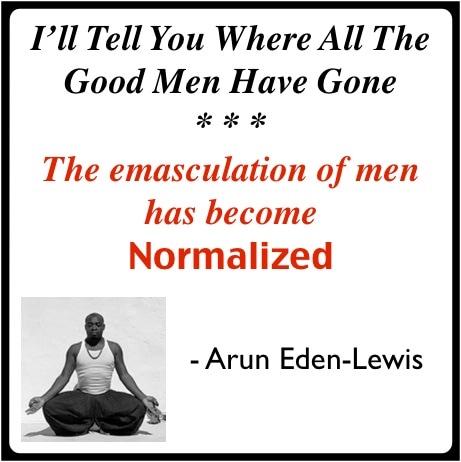
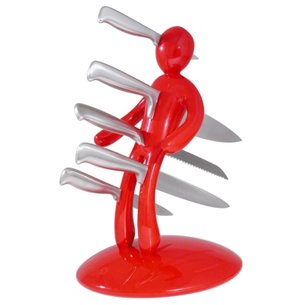











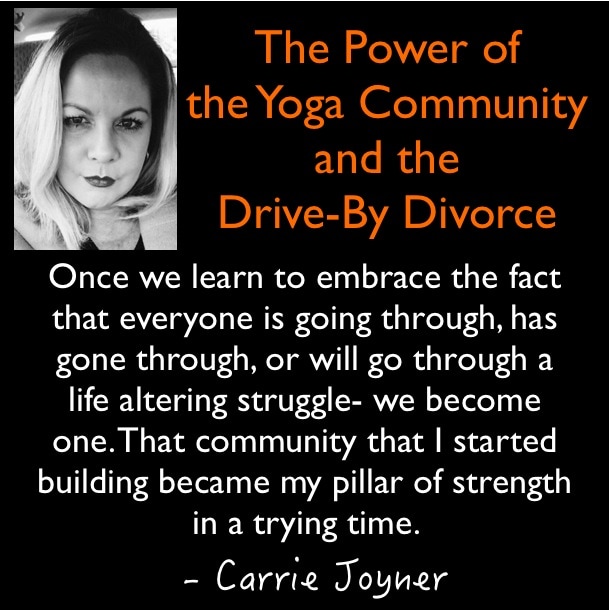
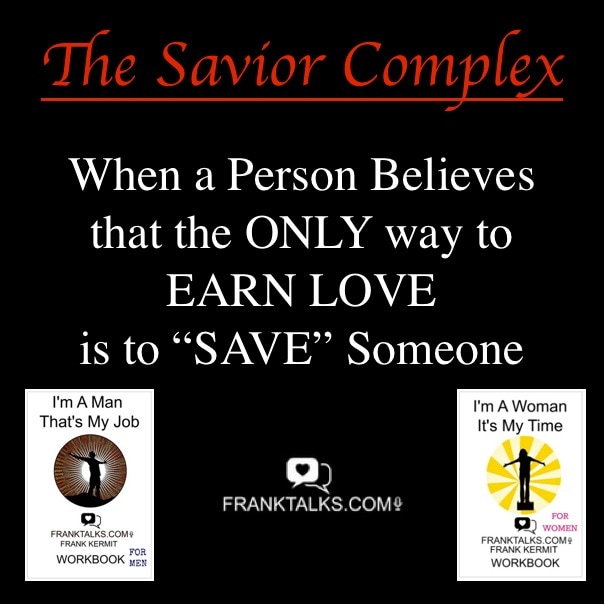

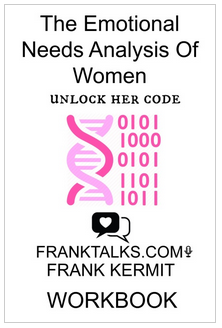




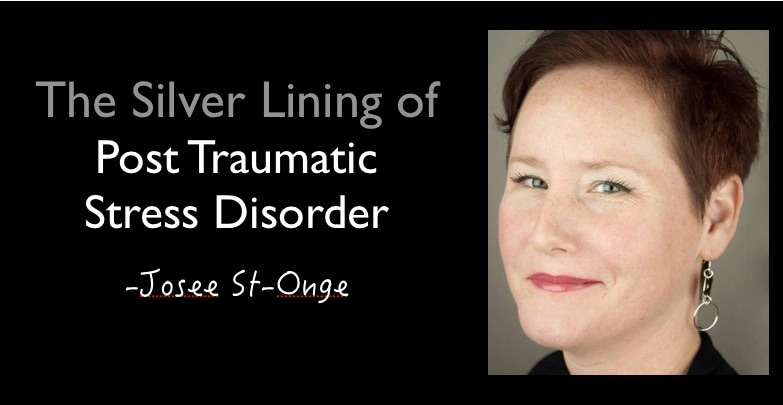














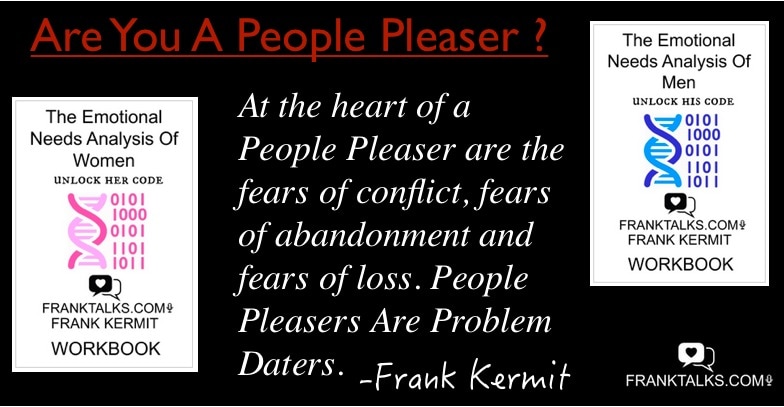

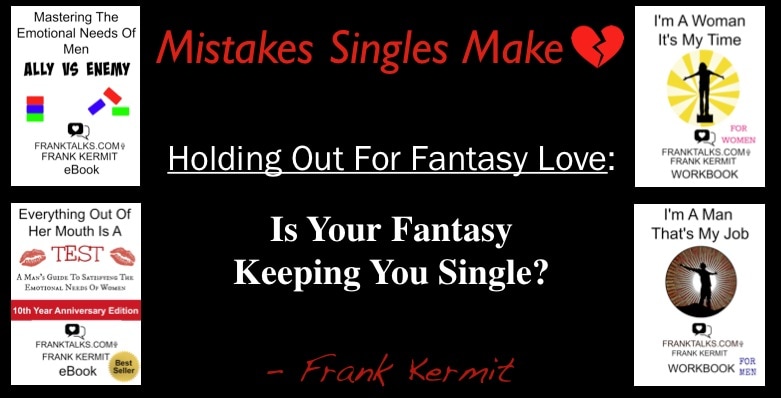

 RSS Feed
RSS Feed


